My Experience with a Mushroom Farming Investment // Mi experiencia con una inversión en cultivo de setas. Eng/Esp
One year after I started my mini mart business, a company approached me with an investment opportunity that seemed promising and viable in the making.
I did not show any interest, in fact, I clearly told them that I was not interested. I have heard countless stories of people investing their money into all kinds of businesses, only for it to fold up shortly after. Bad investment news hits differently in this part of the world, I was afraid to look into it to see whether it had the potential to succeed.
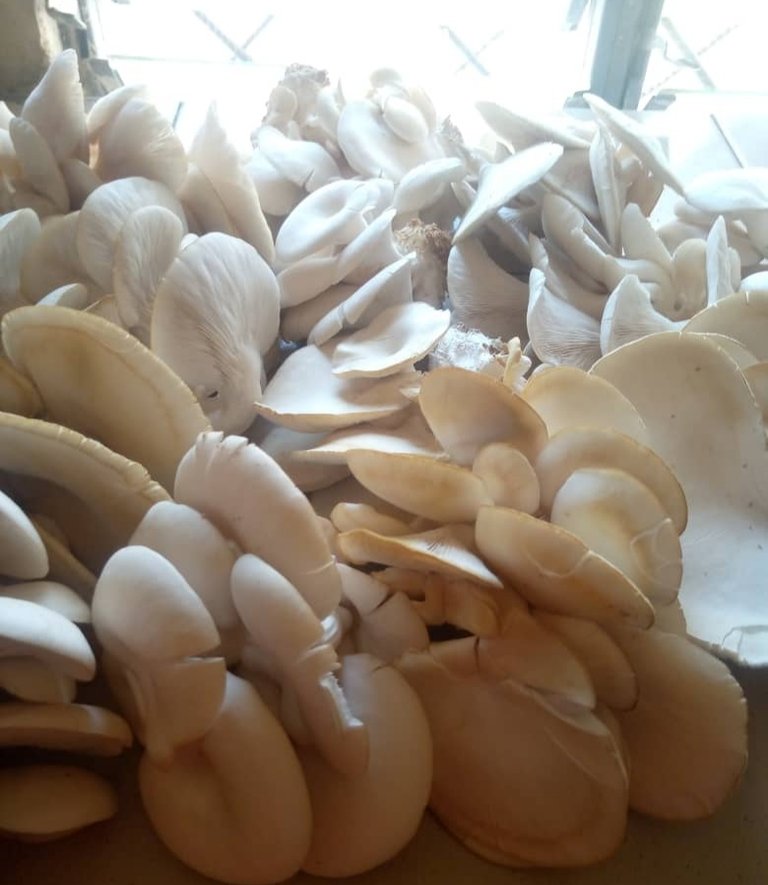
Until one day, my spouse came back from work and all he talked about was The Mushroom Farming Investment. He talked me into considering it. In fact, he went ahead to buy me a form that cost ₦2,000 and also paid a one-time registration fee of ₦38,000.

I was scheduled for a three-day orientation where they educated us on:
- The Mushroom Farming Investment
- The people involved
- The process
- The proceeds
- Stages of investment
- How we earn
- The market
It sounded legit…
After the first day, I was intrigued by how much I could potentially earn. Not only would I be investing, but I would also learn how to farm mushrooms “OYSTER mushrooms” to be precise. The best part was; they already had a ready market. This was structured to be a three year project.

I invested ₦70,000 for a 3 year land lease and ₦120,000 as capital, which was supposed to yield at least 180 kg of mushrooms, sold at ₦1,400 per kg. That meant I should receive a return of ₦252,000 in the first quarter. We were advised to take out only ₦12,000 (called "upkeep") and reinvest the remaining ₦240,000 into the second quarter. This cycle was structured into four quarters a year. The "upkeep" was essentially our profit and it was forecasted to grow as we continued reinvesting up to the fourth quarter.
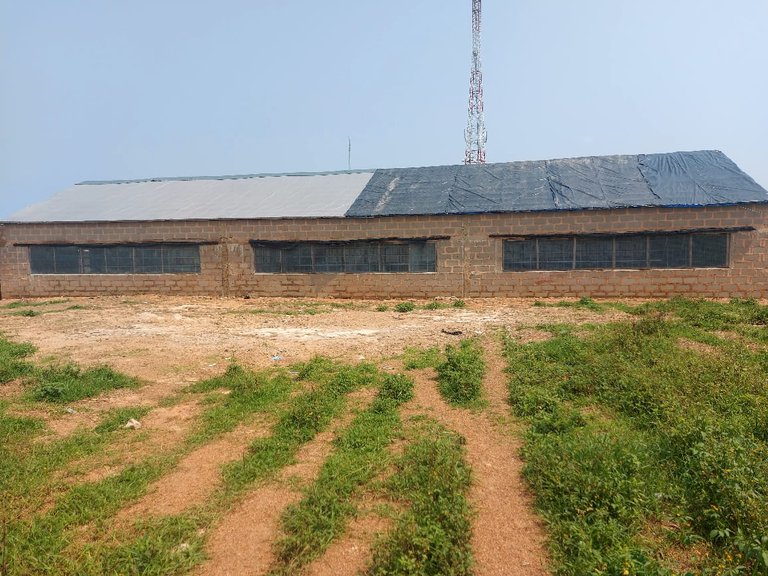
To make it feel like an entrepreneurial setting, we were not just taught mushroom farming in theory, we were split into batches to put to practice what we learned. Twice a week we worked hands-on setting up the farm. It was not easy bagging the pre-mixed dust and stacking them on shelves. While it was fun and educational, it was also very stressful.
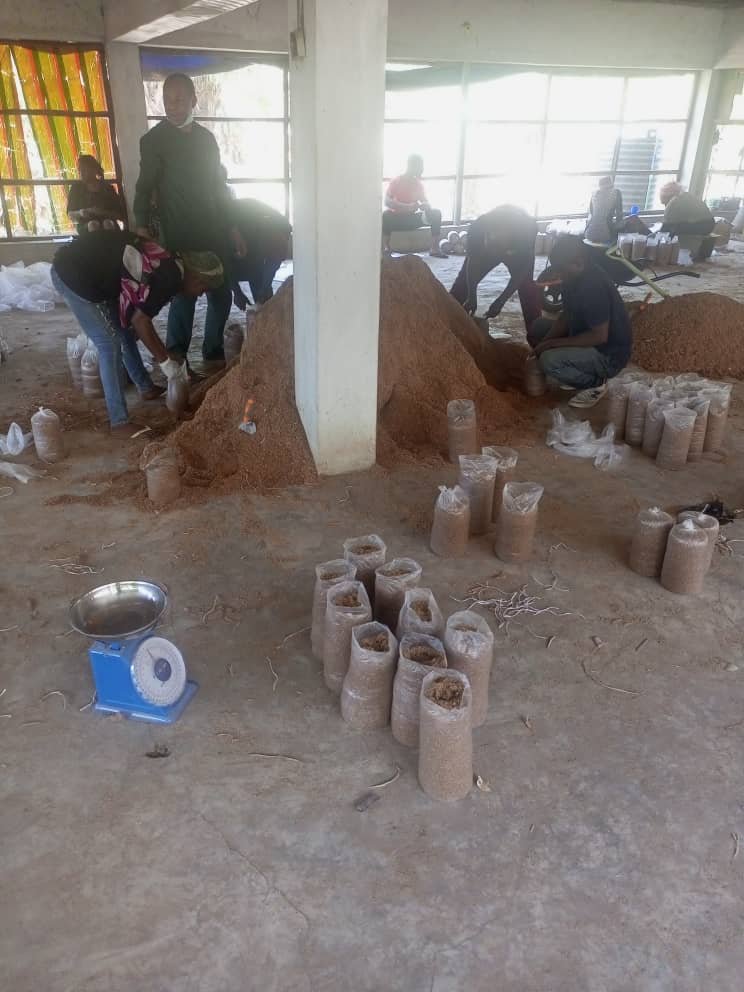
Little did we know that all our hard work and effort would crash before our eyes.
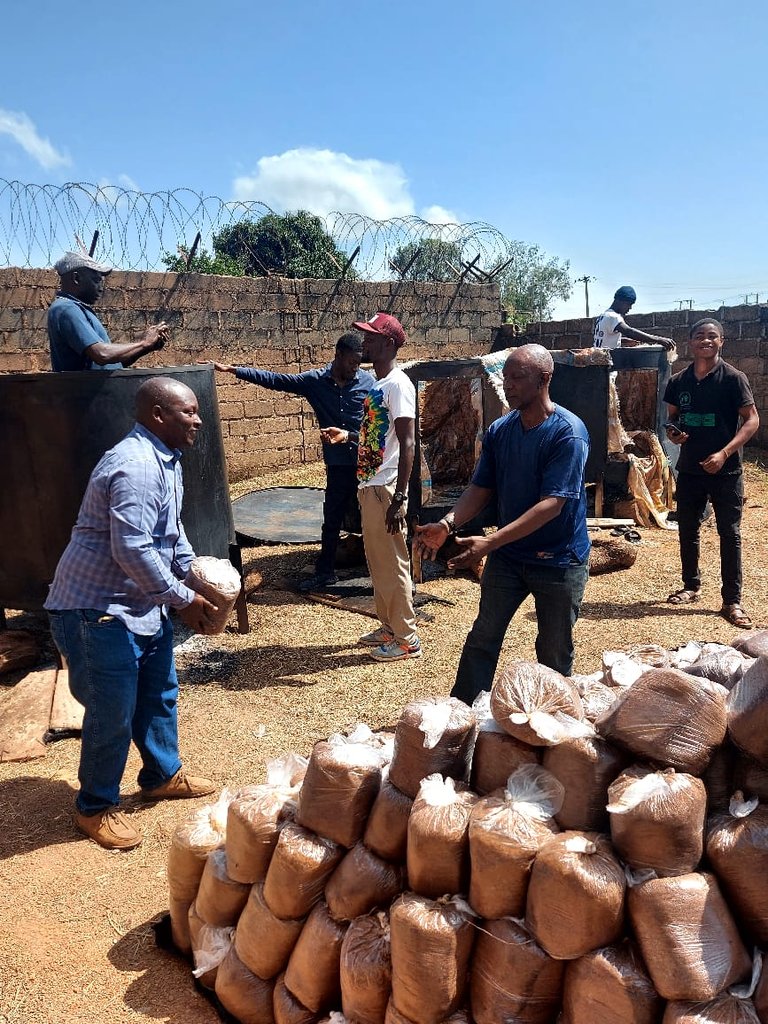
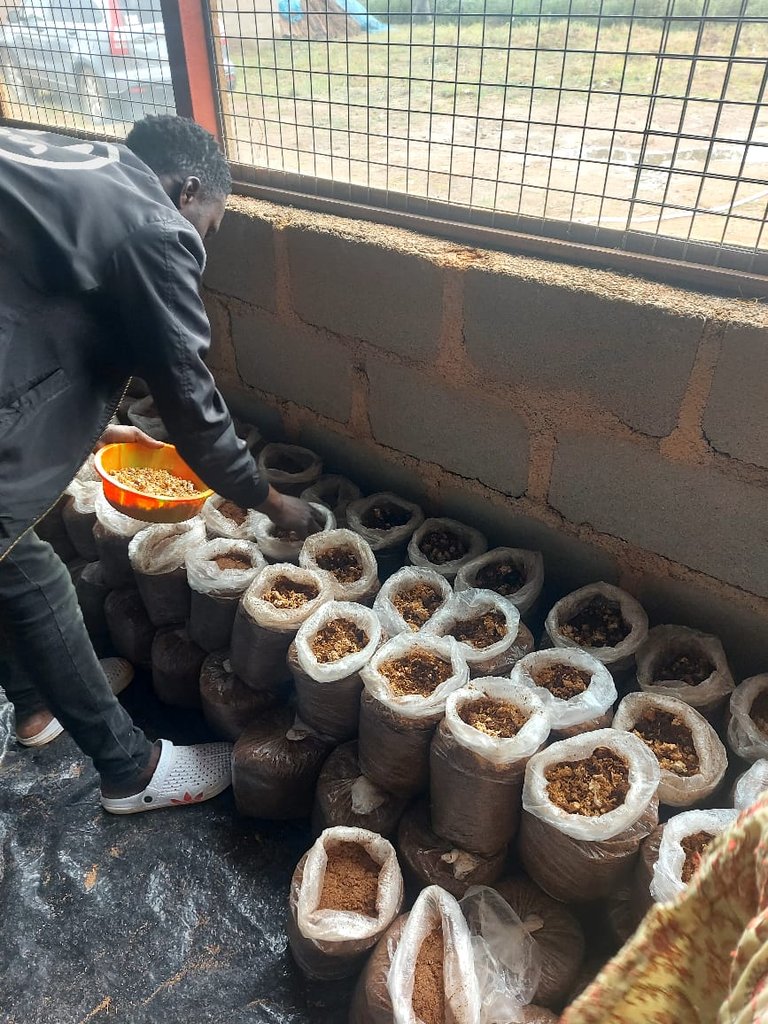
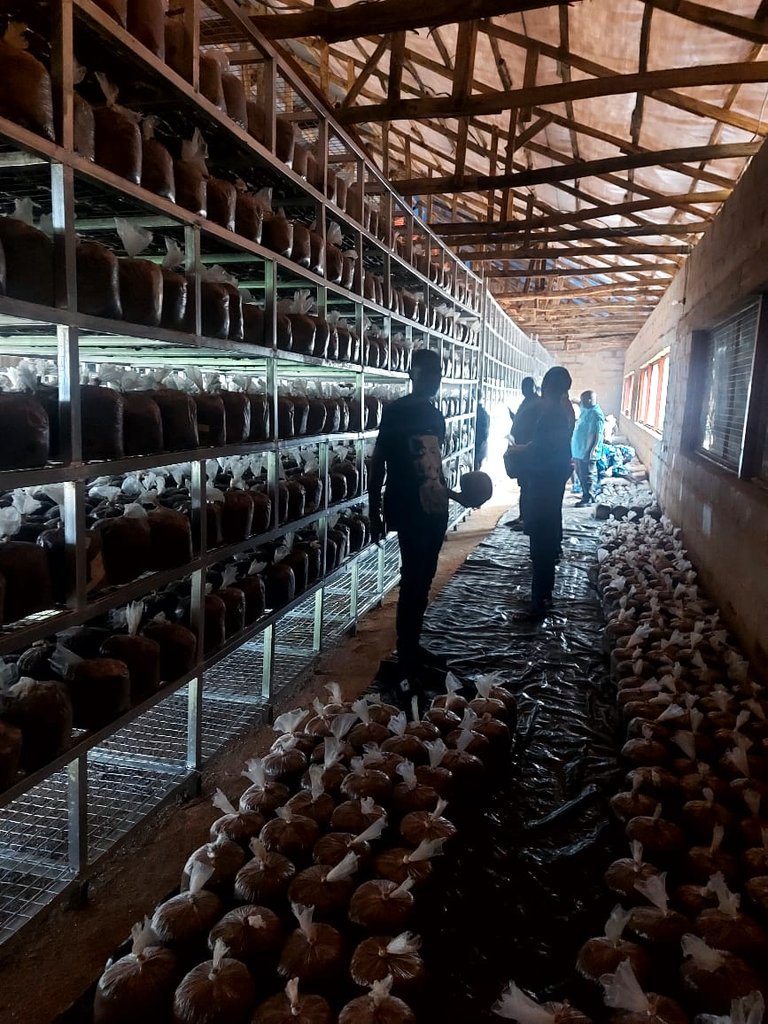
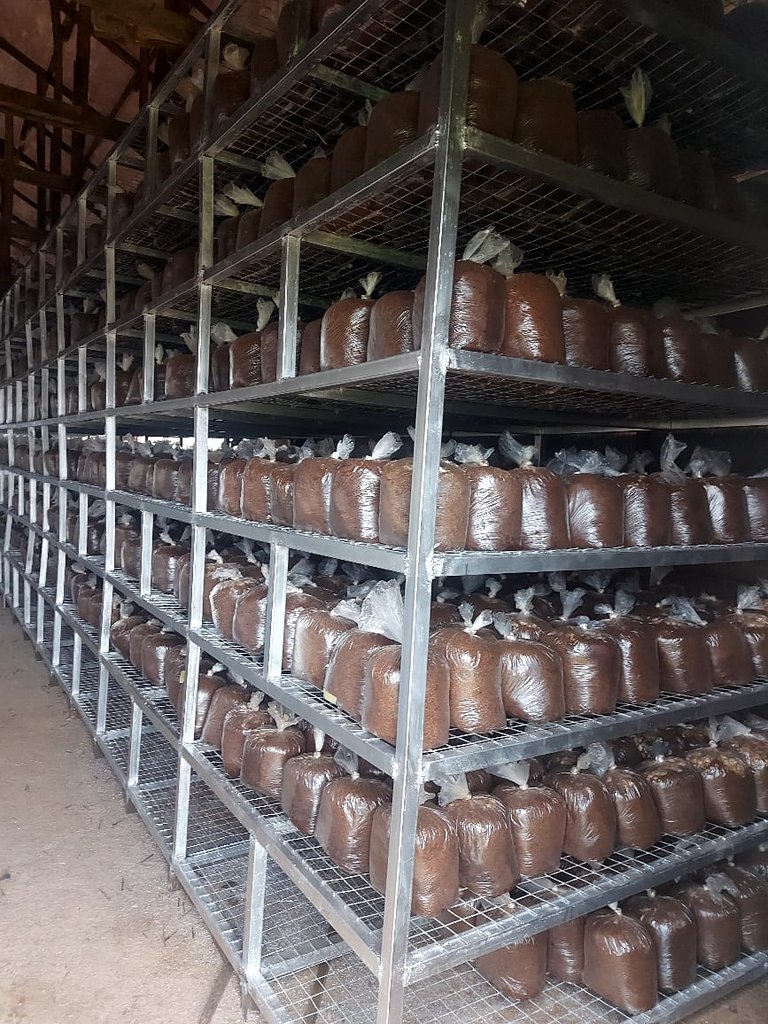
It was supposed to yield returns in three months but it did not. We waited endlessly. Then one day, I got a call from HR asking for my personal information. Afterwards, I received a credit alert of ₦22,700, with the description: “First proceeds from the mushroom farm.” I was confused. Immediately I called HR to understand why the payout was far below what was initially proposed. She explained that this was just the first payment and that more would follow.
My heart raced, I began blaming my partner for convincing me to join. I checked the WhatsApp group and saw many complaints. Some investors were already threatening to sue them for breach of agreement. I felt a bit of relief knowing other investors were actively discussing the issue.
A month after that payment, the president of the company hosted a meeting to address the matter. That’s when we learned that the buyers who had promised the company a stable and reliable market backed out because they got a better offer. The company and the buyers could not come to terms.
This experience taught me something very important. First, I would like to say: “There is no bad business whether it fails or earns less than expected.”
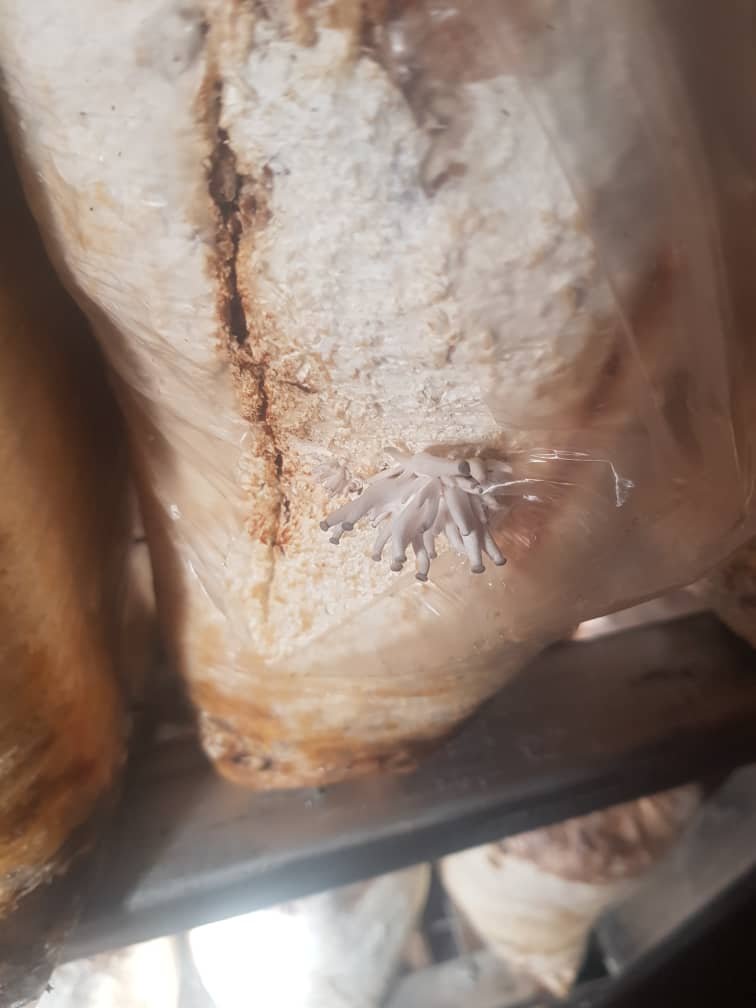
The mushroom investment could have succeeded if the company had been truthful. It was not just about the buyers backing out, we the investors think there was more going on than just the “price”. If those were truly the only buyers and the issue was the “price”, the company should have called a physical meeting with the investors and discussed the new offer. Instead, they went ahead and disagreed privately, and now we have lost our funds. Although we have taken legal action even though they had promised to pay back and apologised, the damage is done.
Before investing in any farm related project, do a proper background check not just on the company, but especially on market demands. In my locality, about 50% of people know about mushrooms but fewer than 10% actually consume them. There is barely a market for them here. We invested based on the assurance that there were ready buyers and originality of the company.
Now, all we are left with is the knowledge of how to farm oyster mushrooms, the dos and don’ts. Maybe that knowledge will come in handy in the near future. I guess.
All images are mine.
Thanks for stopping by 💕
| Espanol |
|---|
Mi experiencia con una inversión en cultivo de setas
Un año después de poner en marcha mi negocio de mini mercados, una empresa se me acercó con una oportunidad de inversión que parecía prometedora y viable en ciernes.
No mostré ningún interés, de hecho, les dije claramente que no me interesaba. He oído innumerables historias de personas que invierten su dinero en todo tipo de negocios, sólo para que fracasen poco después. En esta parte del mundo, las malas noticias sobre inversiones llegan de forma diferente, así que no me atreví a investigar para ver si tenía posibilidades de éxito.

Hasta que un día, mi cónyuge volvió del trabajo y sólo hablaba de La inversión en el cultivo de champiñones. Me convenció para que lo considerara. De hecho, se adelantó a comprarme un formulario que costaba ₦2.000 y también pagó una cuota única de registro de ₦38.000.

Me programaron una orientación de tres días en la que nos instruyeron sobre:
- La inversión en el cultivo de champiñones
- Las personas implicadas
- El proceso
- Los ingresos
- Etapas de la inversión
- Cómo ganamos
- El mercado
Parecía legítimo...
Después del primer día, me intrigó lo mucho que podía ganar. No sólo iba a invertir, sino que también iba a aprender a cultivar setas, «setas OYSTER» para ser exactos. Y lo mejor es que ya tenían un mercado preparado. El proyecto iba a durar tres años:

Invertí 70.000 yenes por el arrendamiento del terreno durante tres años y 120.000 yenes en concepto de capital, con lo que se suponía que obtendría al menos 180 kg de setas, vendidas a 1.400 yenes el kg. Eso significaba que debía recibir un rendimiento de 252.000 yenes en el primer trimestre. Nos aconsejaron sacar sólo 12.000 yenes (lo que se llama «mantenimiento») y reinvertir los 240.000 yenes restantes en el segundo trimestre. Este ciclo se estructuró en cuatro trimestres al año. El «mantenimiento» era esencialmente nuestro beneficio y se preveía que creciera a medida que siguiéramos reinvirtiendo hasta el cuarto trimestre.

Para que pareciera un entorno empresarial, no sólo se nos enseñaba el cultivo de setas en teoría, sino que nos dividíamos en grupos para poner en práctica lo aprendido. Dos veces por semana trabajábamos en la instalación de la granja. No fue fácil embolsar el polvo premezclado y apilarlo en estanterías. Fue divertido y educativo, pero también muy estresante.

No sabíamos que todo nuestro trabajo y esfuerzo se estrellaría ante nuestros ojos.




Se suponía que daría sus frutos en tres meses, pero no fue así. Esperamos sin cesar. Un día me llamaron de Recursos Humanos para pedirme mis datos personales. Después, recibí una alerta de crédito de ₦22.700, con la descripción: «Primeros ingresos de la granja de setas ». Estaba confuso. Inmediatamente llamé a RRHH para entender por qué el pago estaba muy por debajo de lo propuesto inicialmente. Me explicaron que sólo era el primer pago y que vendrían más.
Se me aceleró el corazón y empecé a culpar a mi compañera por convencerme de que me uniera. Revisé el grupo de WhatsApp y vi muchas quejas. Algunos inversores ya amenazaban con demandarles por incumplimiento de contrato. Sentí un poco de alivio al saber que otros inversores estaban debatiendo activamente el asunto.
Un mes después de ese pago, el presidente de la empresa organizó una reunión para abordar el asunto. Fue entonces cuando nos enteramos de que los compradores que habían prometido a la empresa un mercado estable y fiable se echaron atrás porque recibieron una oferta mejor. La empresa y los compradores no pudieron llegar a un acuerdo.
Esta experiencia me enseñó algo muy importante. En primer lugar, me gustaría decir: «No hay negocio malo si fracasa o gana menos de lo esperado ».

La inversión en champiñones podría haber tenido éxito si la empresa hubiera sido sincera. No se trataba sólo de que los compradores se echaran atrás, los inversores pensamos que había algo más que el «precio». Si esos eran realmente los únicos compradores y el problema era el «precio», la empresa debería haber convocado una reunión física con los inversores y haber discutido la nueva oferta. En lugar de eso, se adelantaron y discreparon en privado, y ahora hemos perdido nuestros fondos. Aunque hemos emprendido acciones legales a pesar de que habían prometido devolver el dinero y se habían disculpado, el daño ya está hecho.
Antes de invertir en cualquier proyecto relacionado con una explotación, hay que hacer una comprobación de antecedentes no sólo de la empresa, sino sobre todo de las demandas del mercado. En mi localidad, alrededor del 50% de la gente conoce las setas, pero menos del 10% las consume realmente. Aquí apenas hay mercado. Invertimos basándonos en la seguridad de que había compradores dispuestos y en la originalidad de la empresa.
Ahora, lo único que nos queda es saber cómo cultivar setas ostra, lo que hay que hacer y lo que no. Quizá esos conocimientos nos sean útiles en un futuro próximo. Supongo que sí.
Todas las imágenes son mías.
Gracias por pasarte 💕
Traducido con deepl

Good evening @ginika, No matter how much we are told that we have to take risks, when we make mistakes, it hurts, and with that comes the learning that comes with experience. I hope you recover and that what you have learned from both cultivation and investment will serve you well for future growth in the medium term.
Yeah! For some business individuals risk taking is one of the most talk about idea for growth and success.
I also hope we get refunded.
Thank you!
🎉🎉🥳 Congratulations 🥳🎊🎊
Your post has just been curated and upvoted by Ecency
keep up the good work
if it's to good to be truth it's probably a scam ..
Join us on the Ecency Discord
Thank you!
Who don't risk, don't win, he says... at least you tried. Any investment can fail, so don't worry. Sorry if you lost money, I hope it's better next time :)
I hope so too
I totally understand the "bad investment news hit different in this part of the world" because I live in one of those places. Good luck next time and sorry
I am glad you could relate, I hope one day I will have a successful investment.
Thank you for your time.